TIMES







Take the next step at Cuyahoga Community College (Tri-C®).
Gain in-demand job skills or earn an affordable, transfer-friendly degree.
Tri-C can even help you launch your own business. Knowledgeable instructors and advisors will help you create a customized plan that puts you on the fast track to your dream job, a four-year degree or whatever your next step in life is.
So
Tri-C
When a college or university celebrates its graduates, why do we call it a commencement ceremony?
Their academic journey is coming to an end. It seems more of a finale than a beginning.
But a commencement ceremony doesn’t celebrate the end of a student’s academic career — it celebrates the beginning of a new phase of life.
It is the moment when new graduates harness their potential and accumulated knowledge to make their mark on their communities and the world.
In this issue of Tri-C Times, you will meet some outstanding members of our Class of Spring 2025 at Cuyahoga Community College (Tri-C®). You will learn about what brought them to Tri-C and the dreams they aim to achieve with their newly minted degrees.
They are a small sample of our nearly 1,700 graduates this spring. If we had the space, we’d share all their stories. Each one represents the value and power of a Tri-C education.

In this issue, you will also learn about other people and programs that reflect the impact Tri-C has had — and will continue to have — on Northeast Ohio.
You’ll read about our newly named Workforce Innovation division and its cutting-edge workforce training for individuals and businesses.
You’ll meet Tri-C alumnus Daniel Newman, who turned a high school counselor’s negative feedback into the motivation to pursue a law career. Newman has also been an instructor in Tri-C’s Paralegal program for more than 20 years.
You’ll read about Anne Distler, Ph.D., a chemistry professor at our Westshore Campus who has helped initiate student-centered sustainability projects through the Environmental Club.
And you'll learn more about Bill Rini, who is benefiting culinary students with a scholarship in memory of his sister and real-world experience through a new eatery, Rejuv, on Public Square.
From new graduates to longtime alumni, faculty and staff to donors, so many people have a Tri-C story to tell. We’re excited to continue sharing them with you.
Sincerely,
Michael A. Baston, J.D., Ed.D. President, Cuyahoga Community College
A commencement ceremony doesn’t celebrate the end of a student’s academic career — it celebrates the beginning of a new phase of life.
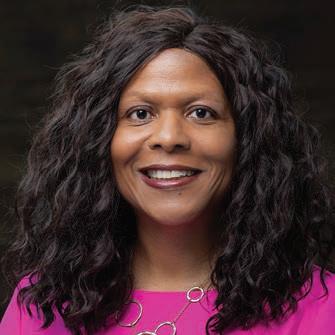
EDITOR/MANAGING
Jarrod Zickefoose
ASSISTANT
Erik Cassano
COPY
Noelle Bye
WRITERS
Noelle Bye
Erik Cassano
Anthony Moujaes
Jarrod Zickefoose ART
Eric Wheeler
PHOTOGRAPHERS
Noelle Bye
Tammy London
Janet Macoska
Victoria Stanbridge
McKinley Wiley
Cody York

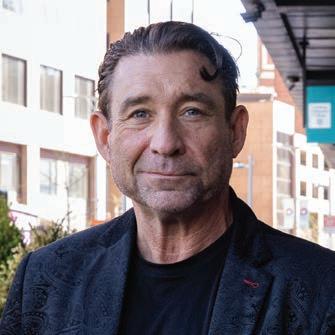

The baseball and softball teams at Cuyahoga Community College (Tri-C®) finished the regular season as champions and co-champions, respectively, of the Ohio Community College Athletic Conference (OCCAC), both earning spots in the National Junior College Athletic Association (NJCAA) playoffs. The baseball team finished at 26-0 in conference play (44-8 overall). They ran out the regular season on an astonishing 40-game win streak, setting a school record, and ranked in the NJCAA Top 25. The softball team finished tied for first place in the OCCAC at 10-2 (20-7 overall).
Tri-C has joined a national initiative to meet the evolving needs of students, community members and the local workforce. Working with the Education Design Lab, Tri-C and four other community colleges will reorient their program offerings around “new majority learners” and the skills they need to succeed in the workforce.






FirstGen Forward recognized Tri-C’s commitment to first-generation students by advancing the College to the highest phase of the First Scholars Network of Institutions. Tri-C is one of only 18 higher education institutions selected for the newest class of FirstGen Forward Network Champions.

Beneath a canopy of teal caps, the Cuyahoga Community College (Tri-C®) Spring 2025 Commencement marked the end of one road and the beginning of another.
Proud graduates crossed the stage, each step a tribute to years of perseverance. As tassels turned, so did life’s page — ushering in a future rich with challenges, purpose and possibilities.
The College celebrated the accomplishments of more than 1,600 graduates in May.
“What makes college different from any other level of education?” Tri-C President Michael A. Baston, J.D., Ed.D., said. “It’s because every student is motivated to be here. The decision to attend college, whether at the age of 18, 88, or anytime between, is because students are motivated to succeed. Students are passionate about learning and are driven to achieve.”
As applause fades and the next chapter begins, the true stories emerge — tales of determination forged in late nights, resiliency shaped by setbacks, and hopes carried beyond the classrooms and labs.
In the profiles ahead, meet the graduates whose journeys reflect the spirit of triumph, transformation and the promise of what’s next.


“Filmmaking just feels like the natural way for me to achieve those passions.”
— Valentina Sánchez Rodriguez
Valentina Sánchez Rodriguez has always loved filmmaking. One of her life’s passions is creating and telling the stories of people who deserve to be seen.
When she came from La Paz, Baja California Sur, Mexico, to the U.S., her dream was to attend a four-year film school, but the pandemic ruined those plans. In 2021, she came to Cuyahoga Community College (Tri-C®) to pursue an education in the Film and Media Arts program.
“Filmmaking just feels like the natural way for me to achieve those passions,” she said. “I never cared how, but I was always writing and directing little shorts with my friends.”
Since her arrival, Sánchez Rodriguez has been active in leadership roles across the College. She was the vice president of the Multicultural Club, a member of the Film Club, a student assistant at the Student Production Office and a senator in the Student Government at the Metropolitan Campus.
Sánchez Rodriguez has also grown as a person through the Honors Program, the Jack, Joseph and Morton Mandel Scholars Academy and the Phi Theta Kappa Honor Society. She’s maintained a spot on the dean’s list every semester.
Her time at Tri-C not only equipped her with a strong foundation in her field but has also inspired her to continue learning and growing in new directions.
Sánchez Rodriguez was the student speaker for Tri-C’s Spring Commencement on May 16 at the Wolstein Center. She graduated with an Associate of Applied Business and a Certificate of Proficiency from the School of Creative Arts.
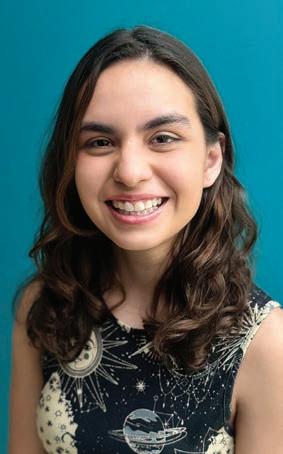
Sánchez Rodriguez will continue her academic journey at Cleveland State University, where she plans to pursue a bachelor’s degree in general business.
Describe your Tri-C experience. Has a specific person, class or event played a role in your success?
I think Tri-C has been a major source of opportunities for me. I got to work at what I want to do for three and a half years in the Student Production Office, and the workshops the Film Academy offers are an incredible opportunity. I cannot give credit to a single person, but overall, Tri-C has been incredibly important for me.
It made me a much more well-rounded, mature and knowledgeable person. It also taught me a lot more about cultures different from my own than I thought it would. It helped me to become the leader I aspire to be.
Do you have any pearls of wisdom to share with students?
I would emphasize the importance of continuing the journey because it never stops. You have to keep going and pushing yourself if you wish to be great.
“Each opportunity taught me that true leadership combines service, knowledgesharing and continuous growth.”
— Aboubacar Ati Alher
Aboubacar Ati Alher believes that opportunities should not be wasted, and his journey from Amazon packer to IT professional with a 4.0 GPA is an example of putting belief into action.
When Ahler arrived from Mali four years ago, he only spoke French. The 32-year-old cybersecurity student and Lakewood resident enrolled at Cuyahoga Community College (Tri-C®) in 2021 after a friend and Tri-C graduate said the College was the best place to learn English.
“He was right,” Alher said. “ESL classes became my foundation for everything.”
While at Tri-C, Alher became the vice president of the Cybersecurity Club, where he helped other students develop technical skills while strengthening his own leadership abilities. He volunteered at the Lakewood Public Library and was named the Western Campus Student of the Year for 2025.
“Each opportunity taught me that true leadership combines service, knowledge-sharing and continuous growth,” Alher said.
Alher graduated in May with an Associate of Applied Business from the School of Advanced Manufacturing, Engineering and Computer Science. He plans to pursue a bachelor’s degree in cybersecurity at Western Governors University and hopes to become a cybersecurity analyst.
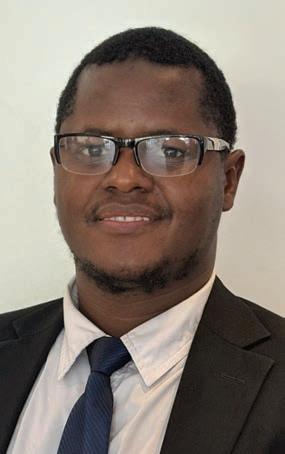
Describe your Tri-C experience. Has a specific person, class or event played a role in your success?
My Tri-C success was built with incredible support: Dr. Rose Desmond at the Eastern Campus made cybersecurity concepts click for me, while Natalie Nurse at the Western Campus guided me during my 2024 summer internship and continues to guide me. Felicia Barker at the Metro Career Center transformed my resume and interview skills, which helped me land my Amazon IT role. Dr. Rebecca Carte pushed me to join the Honors program, believing I could achieve more than I imagined. These mentors didn’t just teach me — they invested in my potential.
How has Tri-C changed your life?
Tri-C transformed me from a nervous immigrant using Google Translate to a confident leader with technical skills, a perfect GPA and a career path. It gave me both an education and an American family.
Do you have any pearls of wisdom to share with students considering a similar degree or certificate program?
First, use every campus resource because they are lifesavers. Second, your background is your superpower. Third, remember my favorite quote from Albert Einstein, who said, “Adversity introduces a man to himself.”

“I want green spaces to become a standard, integral part of our urban infrastructure that everyone has access to.”
— Gabby Fernandez
Having grown up in the city, Gabby Fernandez questions why urban spaces and nature are considered mutually exclusive. Using the knowledge and skills she’s gained from the Plant Science and Landscape Technology program at Cuyahoga Community College (Tri-C®), she hopes to change that perception.
“At my core, I like to know that I am meaningfully contributing to my community,” Fernandez, 26, said. “I want green spaces to become a standard, integral part of our urban infrastructure that everyone has access to.”
Her first attempt at higher education was unsuccessful, and she dropped out, taking a toll on her confidence and passion for anything related to academics. However, she didn’t lose hope and enrolled at Tri-C in 2021.
“My Tri-C experience gave me the opportunity to find my footing again, this time with the proper resources and support,” she said.
During her time at Tri-C, the National Collegiate Landscaping Competition (NCLC) was among her most influential experiences. Fernandez placed second overall in the Interior Landscape Design category and fourth in the Computer Aided Landscape Design category in 2024, when Tri-C took second place overall. In 2023, Fernandez placed fourth in Interior Plant ID, and the College won the NCLC competition.
“I had the opportunity to travel, learn specialized skills, and learn more about an industry that I was very new to at the time,” she said. “NCLC gave me a healthy competitive spirit that really solidified my belonging and interest in this program and industry.”
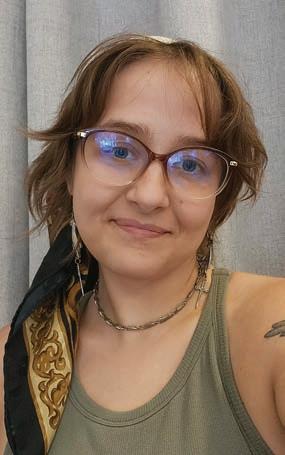
Fernandez graduated with an Associate of Applied Science, a Certificate of Proficiency and a Short-Term Certificate from the School of Liberal Arts and Sciences during Tri-C’s Spring Commencement. She plans to begin a career in the plant science industry and hopes to earn a four-year degree in the future.
I gravitated toward Tri-C because I knew I would have to continue working and managing my life on top of academics. I also knew Tri-C would offer flexibility and financial help to make that possible.
Describe your Tri-C experience. Has a specific person, class or event played a role in your success?
I have made important lifelong friends and gotten more out of the program than I ever expected to. Lori Zatroch, our program director, has been a huge part of my success. She has helped me with things from scholarship applications to accessing important resources
has Tri-C changed your
Aside from the practical skills I gained in the plant science program, I also have a new community and confidence in my abilities.

“I mixed well with the other students, and the teachers were great.”
— Tyler Oboy
Tyler Oboy spent more time at commencement ceremonies this spring than most students his age. The 18-year-old collected two associate degrees from Cuyahoga Community College (Tri-C®) — an Associate of Arts and an Associate of Science — before he graduated from high school in June as the valedictorian of his class.
“I have always been a pretty serious person,” Oboy said. His seriousness has helped him succeed at a young age. Through the third grade, Oboy attended public school in person. His parents enrolled him in an online school for his fourth-grade year, believing it would be a good fit for his focused personality.
He began attending Tri-C as a seventh grader through the College Credit Plus (CCP) program. CCP is a dual enrollment program that allows students in grades seven through 12 to take college courses while completing high school.
“Having been out of the brick-and-mortar setting for many years, I wondered how the transition would go — especially in a college setting,” Oboy said. “But it was a very good experience. I mixed well with the other students, and the teachers were great.”
He completed 89 credit hours at Tri-C, which will transfer toward a bachelor’s degree.
Oboy graduated from the School of Liberal Arts and Sciences at Tri-C’s May Commencement ceremony and was accepted to the Business School and Honors Program at the University of Dayton, where he will study accounting.

“My father also went to UD and studied accounting,” Oboy said. “He spent his career in community banking until he recently retired. I will follow in my father’s footsteps and hope to enjoy a nice career, as he did.”
Describe your Tri-C experience. Has a specific person, class or event played a role in your success?
I am especially grateful to my advisor, Professor Sandra Ranallo, who was so instrumental in helping me navigate the courses that would help me achieve my goal of transferring to a four-year university. She also encouraged me to take a few more courses and earn two degrees.
How has Tri-C changed your life?
I am so grateful for my experience at Tri-C because it has given me a giant leap forward in college. I can earn my bachelor’s degree from UD in two years.
Do you have any pearls of wisdom to share with students considering a similar degree or certificate program?
Tri-C has so much to offer students from a wide range of backgrounds. I was there as a high school student, and there were adults in my class coming back to earn a degree for the first time or change their career path. It is never too late or too early to further your education, and Tri-C is the perfect place to do that, offering support for everyone.
“I was searching, wondering what I should do. I still wanted to achieve my dreams.”
— Josephine Yousef
In 2015, Josephine Yousef couldn’t have imagined how her life was about to change. She was living in Syria. She had a degree in English literature and was teaching English to first and second graders.
That’s when she met someone. They went on a date, and by 2016, they were engaged. She followed her fiancé to Northeast Ohio, and that year, they married. Two years later, they had a newborn daughter, along with the joy and stress that come with it all.
“I was searching, wondering what I should do,” Yousef said. “I still wanted to achieve my dreams.”
That’s when a cousin told her about the Radiography program at Cuyahoga Community College (Tri-C®). After some research, she learned about Northeast Ohio’s strong health care job market and enrolled at Tri-C in 2022.
“I’ve always been interested in science, even in my country,” Yousef said. “Courses about the human body and bones and dealing with patients are interesting.”
She added that taking classes helped her come out of her shell in the U.S.
Things seemed on cruise control until June 2023, when her daughter was diagnosed with neuroblastoma, a type of cancer. Yousef was in her third semester at the College, and that’s when she realized Tri-C had more to offer than what was listed in the course catalog.
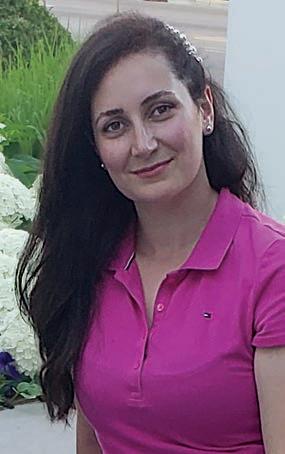
“I was worried all the time,” Yousef said. “I told Elizabeth Gildone, the Radiography program manager, that I may not come back. She was very, very supportive. She told me to put my family first.”
Yousef took Gildone’s advice to take a year off from classes. By May 2024, her daughter was still receiving treatments, but the near-constant oncologist visits and hospital stays had slowed, and Yousef was able to return to Tri-C.
Yousef’s persistence, combined with support from her program faculty and staff, helped her graduate with an Associate of Applied Science from the School of Nursing and Health Professions. She hopes to get a job at University Hospitals, where she has been doing clinicals.
Describe your Tri-C experience. Has a specific person, class or event played a role in your success?
When I took my year off, all my professors offered help and support. When I went back, they were very happy and supported me a lot, even emotionally. That really warmed my heart and made me want to go forward.
If anyone can go to Tri-C, they should. It helped me define and achieve my dream. It’s a wonderful college. The instructors treat us like family.
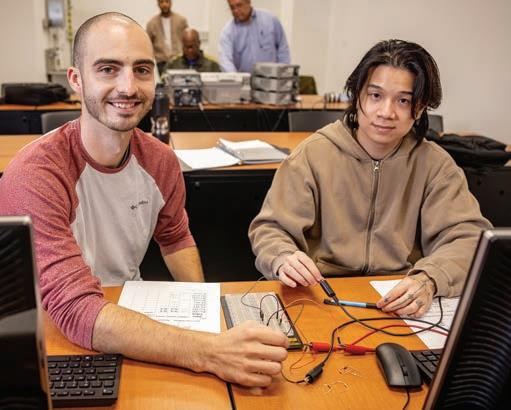

As today’s workforce rapidly shifts, workforce education must innovate to meet the needs of students, businesses and industries.
That is why Tri-C has changed the name of its Workforce, Community and Economic Development (WCED) division to the Workforce Innovation division.
“When we think about workforce, innovation is critical,” said Shana Marbury, the executive vice president of Workforce Innovation. “The College wanted to move away from the traditional ‘development’ focus to what is new, cutting edge and exciting.”
In addition, Workforce Innovation is a more recognized and modern naming convention in colleges and universities across the country, focusing on strategic priorities like serving all students, technology and skills-based education. It signals that Tri-C is meeting the present and future demands of students and businesses by serving as a driver of the regional economy.
“‘Workforce Innovation’ speaks not just to established businesses but also to startups, entrepreneurs and the emerging business models,” Marbury said. “Our division’s new name helps demonstrate Tri-C’s focus on the future of Northeast Ohio and how we are positioning ourselves to help this region move forward.”
So, what’s in a name?




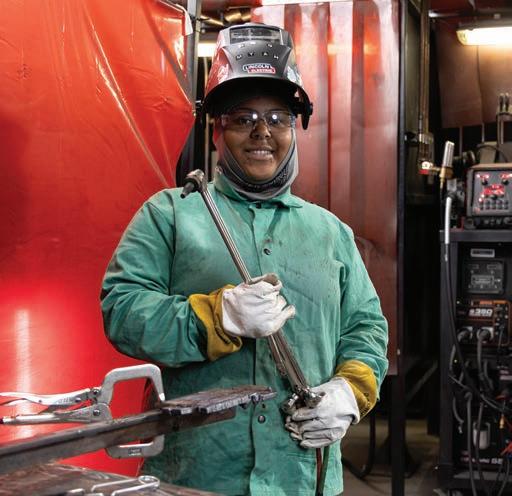

For the last two and a half years, Marbury has led a team to reconceive the College’s workforce division. The new name aligns with the strategic goal implemented by Tri-C President Michael A. Baston, J.D., Ed.D., to create and advance a Collegewide “culture of clarity.” The name change also brings improvements to the division that will help it meet the present and future needs of students and the region’s employers.
Substantive changes include reorganizing the division into academies, launching a new Center for the Future of Work, and introducing support services to help students navigate their experience at Tri-C more efficiently.
To better serve students, the Workforce Innovation division will transition to a student-centric and clarifying structure that aligns workforce programs into academies. The academies will simplify pathways for students, helping to eliminate missteps in course selection and charting a clearer path to the finish line. This will lead to the quicker attainment of credentials, degrees and professional development.
The realignment mirrors a recent change made on the academic side of the College. Academic programs were organized into five schools: the School of Advanced Manufacturing, Engineering and Computer Science; the School of Business, Legal Professions and Hospitality; the School of Creative Arts; the School of Liberal Arts and Sciences; and the School of Nursing and Health Professions.

“We did some organization around the academic pathways, and now we are doing some organization around workforce pathways,” Marbury said.
• Advanced Manufacturing and Engineering Academy
• Construction Academy
• Health Industry Solutions Training Academy
• Public Safety Training Academy
• Transportation and Logistics Training Academy

“We’re using the academies and the schools together to create bridges and pathways for students to walk seamlessly from the workforce division to the academic side of the College and back again,” Marbury said.
The Workforce Innovation division is also looking for ways to improve academic counseling and other support services for workforce students.
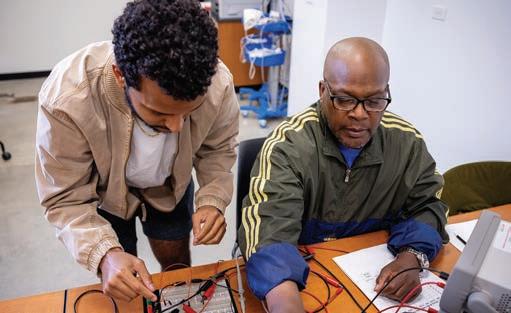

There are many hot topics in the workforce, such as AI, the “gig economy,” and remote and hybrid work. Marbury describes the Center for the Future of Work as a cross between a think tank and a learning laboratory where the College and community stakeholders can come together to have meaningful discussions and forge sensible action items to pave the path ahead.
Marbury said the future of the Northeast Ohio workforce is bright, and, as a leader in workforce innovation, Tri-C should have a voice in helping shape that future.

The center will expand on the College’s already strong workforce partnerships, offering a space for deeper conversations and experiences for all.
The Center for the Future of Work will conduct research, develop faculty and student skills, shape policy, foster innovation, and raise public awareness to help students and stakeholders thrive and incentivize their participation in the regional economy.
“We’re using the academies and the schools together to create bridges and pathways for students to walk seamlessly from the workforce division to the academic side of the College and back again.”
— Shana Marbury
“Tri-C is, in many quarters, primarily known as a training provider. We do provide training, but at the same time, this College is a community anchor. We are a part of economic development in the region.”
— Shana Marbury
“The center aims to serve multiple constituencies: internally, our students, staff and faculty; externally, our business partners, community partners and the members of our community,” Marbury said.
Marbury said faculty externships will give College faculty members the opportunity to “embed” at a company. This will allow them to see how what they teach in the classroom measures up to what is being done. Some longer externships may allow faculty to participate in projects or joint research.
“It’s an opportunity for the faculty to not only develop their skills but also bring back new information and add it to the curriculum and deliver it to students.


“Tri-C is, in many quarters, primarily known as a training provider. We do provide training, but at the same time, this College is a community anchor. We are a part of economic development in the region,” Marbury said.
“We are looking for Tri-C to have a seat at the table in these important community conversations, whether it’s the workforce ecosystem, the economic development ecosystem, or any other community conversation of consequence.”







Everybody comes to a crossroads at some point in their life — a decision with long-reaching ramifications.
Daniel Newman reached his crossroads in high school.
“I went to Fairview Park High School in the ‘80s,” said Newman, 55, of Westlake. “Admittedly, I wasn’t the best student. I got off track and became a bit of an underachiever. So, when I was preparing to graduate and talking to my guidance counselor, he told me he didn’t think I was intelligent enough for college.”
The counselor’s words cut deeply for a teenager still unsure of his goals and ambitions, but as he was reeling, he felt something else rise within him, something he had never felt before: a sense of resolve.
“I did feel sorry for myself for a while,” he said. “I was upset and hurt, like anyone would probably be in that situation. But I was also really close with my grandmother, and when I was a kid and crying over something, she used to tell me that you’ll never find what you want in life with tears in your eyes. And I remembered that.”
Instead of giving up, he became determined to prove the counselor wrong. It led him on a journey that started at Cuyahoga Community College (Tri-C®) and brought him all the way to a law degree and his current position as an ad hoc magistrate at the Cuyahoga County Domestic Relations Court.
STORY BY Erik Cassano
After graduating from high school in 1987, Newman enrolled at Tri-C, and his newfound motivation immediately became evident. Working part time to pay his way through school, Newman made the dean’s list while taking 21 credit hours of classes.
“I quickly found that Tri-C is a special academic environment,” he said. “I saw that people aren’t here to waste time. They’re here to learn so they can begin a career. That resonated with me.”
Newman’s instructors sparked his love of learning and set the stage for the rest of his academic career.
“I found an intellectually stimulating environment at Tri-C,” he said. “I think that is a big reason why I went into law. I like to be challenged. I wanted a career where I’d be challenged to think.”
After graduating with an Associate of Arts degree in 1989, Newman continued his college career at Edinboro University of Pennsylvania (now Pennsylvania Western University, Edinboro), earning a bachelor’s degree in education in 1991.
He worked for four years in tutoring and restaurant jobs to save up for law school, enrolling at the Cleveland State University School of Law in 1995.
“I found an intellectually stimulating environment at Tri-C. I think that is a big reason why I went into law. I like to be challenged. I wanted a career where I’d be challenged to think.”
— Daniel Newman
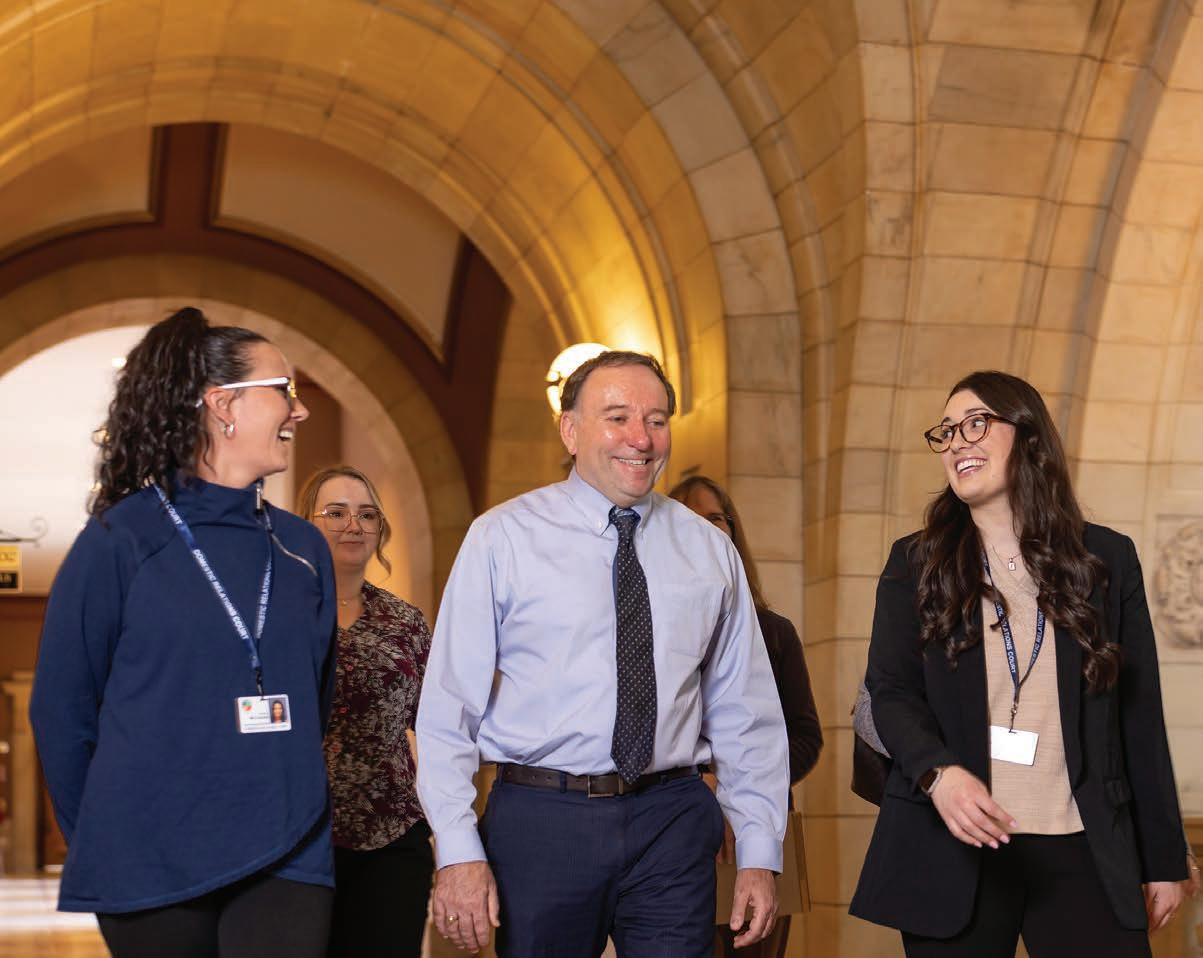


It was at CSU where Newman met longtime Tri-C assistant philosophy professor Jeffrey Tuma, who would help set Newman’s second career as a teacher in motion.
“My two big professional loves are law and teaching,” Newman said. “At that time, I knew I was going to enter the law field, but I didn’t know if I’d ever really put my undergrad degree in education to use. I met Jeff Tuma in law school, and we became great friends. After I graduated from CSU Law in 1999, he got in touch with me a few years later and told me he thought I’d be a good instructor in Tri-C’s Paralegal program.”
Newman started teaching at Tri-C in 2003 and has taught paralegal classes ever since. As he rose from staff attorney and bailiff to assistant magistrate and, eight years ago, a domestic relations magistrate, his connection to Tri-C as a paralegal instructor has remained a constant for 22 years, teaching more than 100 classes.
“I love my job as a magistrate, but there is a special sense of gratification and accomplishment I get from paying forward what I have learned to the new generations of legal professionals,” Newman said. “Even if it has been a long, busy day at the court, I step onto the Western Campus at Tri-C, and it brings me back to when I was 17 and taking my first steps at college. It’s a blessing to walk into Tri-C as a teacher after having been a student.”
Over the years, Newman has watched many of his students go on to careers in the legal profession. Several dozen of them have completed their practicums in his courtroom, with a few going on to full-time employment at the domestic relations court.
“One of the many advantages of going to school at Tri-C is the number of professors and instructors who have realworld experience,” he said. “I know that as a student myself, I always liked it when I had a professor who was also working in their field. I try to bring that same type of experience to the students I teach.”
Unlike the discouraging words he heard from his high school counselor nearly 40 years ago, Newman aims to bring encouragement along with real-world experience to his classroom.
“I feel like I’m hopefully the right person in the right place at the right time,” he said. “I’m a person of strong faith that has helped me throughout my life. I don’t know if it was divine intervention, but the words of that counselor and then meeting Jeff Tuma when I did, opening the door to teaching — it all feels like it was meant to happen this way. I’m grateful for the road I have traveled to get here.”
Tuma died in January 2021. That year, Tri-C established the Jeffrey Tuma Student Emergency Fund to continue his work of supporting students. The College also dedicated its “We The People” campus conversation series to Tuma.
“In some way, I hope the work I do now helps carry on Jeff’s legacy,” Newman said. “He believed in the mission of this College as I do. Tri-C is a springboard to success you might never have imagined before you came here. I experienced it myself, and I see it play out with my own students.”





CHEMISTRY PROFESSOR ANNE DISTLER IS CULTIVATING A CULTURE OF SUSTAINABILITY AT TRI-C.

“I compost anything that doesn’t get used from the Food Pantry or if there’s food that comes in that’s not usable. We have a composter outside, and we then use that for the outdoor garden.”
— Anne Distler
For Anne Distler, Ph.D., the journey from chemical research to the front of a classroom has been marked by a commitment not just to her students but also to the planet they’ll inherit.

Distler is a driving force behind several green initiatives at the Westshore Campus of Cuyahoga Community College (Tri-C®). Along with her colleague Erica Stevenson from the Biology department, Distler helps lead student- and staff-focused efforts like the Environmental Club to raise awareness about sustainability issues and implement
In addition to planting a monarch garden — a native pollinator habitat that supports dwindling monarch butterfly populations — the Environmental Club also planted a hydroponic garden. The club takes many of the herbs and the lettuce it has grown to the campus Food Pantry, an on-campus resource that assists students in need, giving it a fresh source of herbs and lettuce.
“I compost anything that doesn’t get used from the Food Pantry or if there’s food that comes in that’s not usable,” she said. “We have a composter outside, and we then
Distler takes advantage of Westshore’s extensive green space as much as possible. When Distler takes a sabbatical next year, she plans to design new labs that will get her students outside and more engaged with their surroundings.



“I’m going to do some soil and water testing,” Distler said. “So, in my everyday chemistry course, we can do more handson experiments. It should be a nice culmination of making topics more relevant and engaging for our students.”
Distler strives to connect chemistry concepts to real-world applications, particularly in her non-major chemistry courses.
“My goal is to show students how chemistry impacts their daily lives,” she said.
Through courses such as Everyday Chemistry, she introduces topics like the chemistry of water, air and food to help her students see the subject’s relevance.
“Chemistry can be intimidating, especially for non-science majors,” she said. “But once they see how it explains the world around them, light bulbs start to go off.”
Born in Cincinnati and raised in several Midwest cities, Distler’s upbringing was influenced by her family’s professional pursuits in the medical field. Her father was a doctor, and her mother was a nurse.
“I always assumed I was going to go into health careers,” Distler said. “And then, when I got into it, I realized that was not for me. I’m not a big fan of blood.”
A high school AP chemistry class gave her a new goal. She was especially inspired by her teacher, Dale Ressler, a chemical engineer with Dow Chemical, who showed her that chemistry wasn’t bound by lab work alone but could be applied to solve tangible problems in the real world.
While chemistry was the focus of her undergraduate studies at the University of Notre Dame, Distler wasn’t initially sure where a degree in the subject would lead her.
“My goal is to show students how chemistry impacts their daily lives.” — Anne Distler




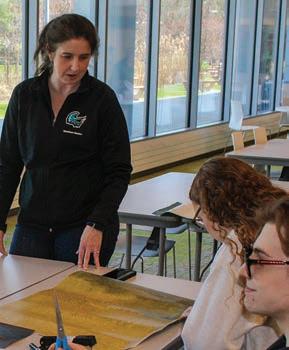



A Notre Dame counselor encouraged her to pursue graduate work in chemistry. During her Ph.D. studies at Michigan State University, she connected closely with the teaching side of academia. She earned her doctorate in 2003.
After her husband’s job brought them to Northeast Ohio, Distler took a position at Case Western Reserve University, where she juggled research and teaching responsibilities. It became increasingly clear that lab work alone wasn’t enough to satisfy her professional ambitions.
“I realized I wanted to be more student-focused, to provide guidance and help students find their footing in chemistry,” she said.
When a chemistry teaching role opened at Tri-C’s Eastern Campus in 2009, she seized the opportunity. In 2011, she moved to the Westshore Campus, seeking the chance to help develop a new campus near her home in Avon Lake.
When she’s not at Westshore, Distler and her family enjoy outdoor activities, particularly in the summer.
“I just love water sports, so we do a lot of paddleboarding, kayaking and boating in the summer,” she said. “We’re an outdoorsy kind of family.”
She and her husband have two kids — a son who’s a freshman at the University of Cincinnati and a daughter who’s wrapping up her senior year of high school and plans to join her brother there.
The move to Westshore also gave her a chance to engage more deeply with the campus community.
“Here at Westshore, we have a really close-knit group of faculty, so we collaborate all the time,” Distler said. “We’re very student-focused — getting the students through the program and making sure that they’re as successful as possible. I just like that focus.
“Much of what I did when I was up at Michigan State in graduate school was focused on first-generation college students and making sure that they had the tools they needed to be successful in chemistry. And I really liked that. I feel like that’s what we do here — making sure our students are going to be successful.”
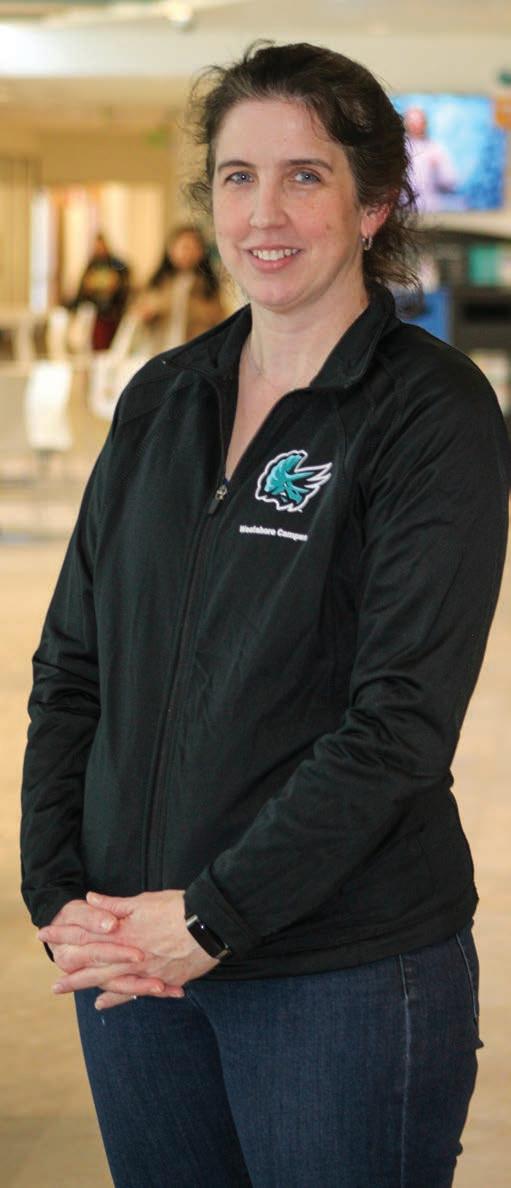
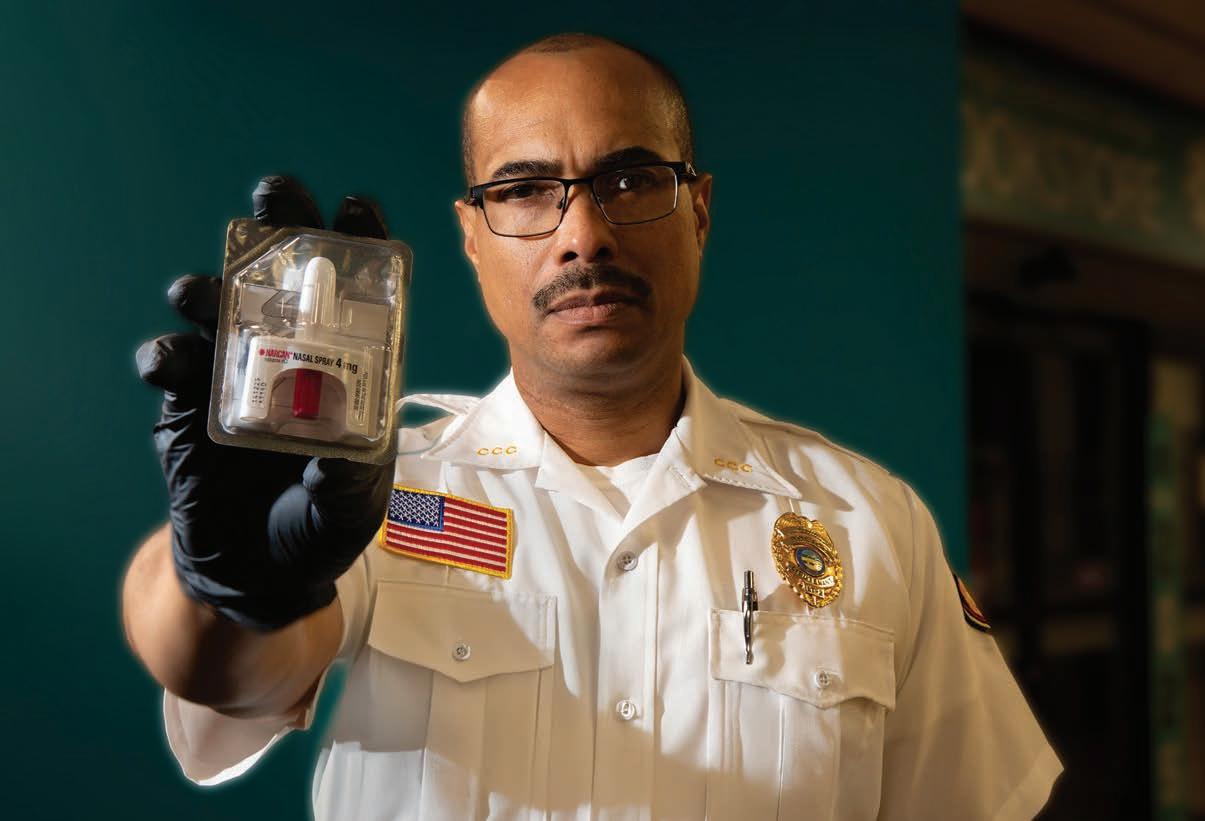
NINE NALOXONE CABINETS ACROSS TRI-C WILL INCREASE COMMUNITY ACCESS TO THE LIFE-SAVING MEDICATION.
Lt. Thomas McMillan has served 16 years with the Campus Police and Security Services at Cuyahoga Community College (Tri-C®). He’s seen many heart-pounding situations during that time — but few compare to what he witnessed two years ago while visiting a friend in New Jersey.
He saw a woman collapsed and exhibiting signs of a drug overdose while someone administered naloxone and shook her body. McMillan immediately went into a nearby home to phone the police and EMS.
By the time he walked outside moments later, the woman had regained consciousness and was standing.
“Naloxone works, and it saved her life,” McMillan said.
Death following opioid overdose is preventable if the person receives basic life support and the timely administration of the opioid antagonist, naloxone. Commonly known by the brand name Narcan, this medication is used to counter the effects of an opioid drug, such as heroin or fentanyl, or some prescription pain medications. When administered during an overdose, naloxone blocks the effects of opioids on the brain and quickly restores breathing.
STORY BY Anthony Moujaes


Overdose deaths in Ohio decreased by 9% in 2023 — better than the 2% decrease nationwide — but 12 Ohioans still die each day from unintentional drug overdoses.
A statewide initiative that began in 2023 provided emergency naloxone cabinets to public college and university campuses. Tri-C leaders determined the program would help increase community-based access to the life-saving medication and applied to participate.
Cabinets containing overdose emergency kits with naloxone are at nine locations across the College’s campuses and facilities. Campus Police installed five cabinets in June 2023, and four more cabinets were installed in January.
“Because these cabinets and the medication are in public spaces, it widens the Campus Police team since anyone can administer it if they feel comfortable,” McMillan said. “Most of the questions that Campus Police received were from people wanting to take advantage of training offered to identify the signs of an overdose, safety precautions and how to administer it.”
The wall-mounted red cabinets contain instructions on how to render aid to an overdose victim. No special access or permission is required for use.
Since implementing the program in 2023, Campus Police haven’t received a call for an overdose incident, but they and other law enforcement officers in Ohio are increasingly issued naloxone.
“As a community college, we’re here to see people succeed in life by changing their lives, which might start by saving someone’s life.”
— Lt. Thomas McMillan
“It’s become a part of any emergency kit — like an AED, Tylenol, bandages, tourniquet — and because we are first responders, we have an obligation to try to save someone’s life,” McMillan said.
The installation of these cabinets was made possible by RecoveryOhio, the Ohio Department of Education and the Ohio Department of Health, which has offered drug overdose emergency cabinets to each of Ohio’s public colleges and universities at no cost.
“No student is exempt from mental health and drug addictions, so Tri-C wanted to provide access and tools where everyone would be able to save someone’s life regardless of who they were,” McMillan said.
Tri-C is the only higher education institution in Cuyahoga County that has installed the Narcan boxes. The College also has drug drop boxes at three campuses, offered in partnership with the Cuyahoga County Sheriff’s Department.
“I really believe this work is instrumental and vital for our community,” McMillan said. “As a community college, we’re here to see people succeed in life by changing their lives, which might start by saving someone’s life.”
Naloxone cabinet locations at Tri-C:


• District Administrative Offices, room 146 (kitchenette)
• Jerry Sue Thornton Center lobby, near the restrooms
• Corporate College® East, near room 123C (next to the AED machine)
• Transportation Innovation Center, on the wall near the reception desk
• Brunswick University Center, room 110
• Eastern Campus, ESS 1209
• Metropolitan Campus, MCC 030
• Western Campus, G101
• Westshore Campus, SLT 123A

Do good, feel good: This is Bill Rini’s guiding principle.
To that end, he started the Michelle Rini Future for Culinary Excellence Scholarship Fund with the Cuyahoga Community College (Tri-C®) Foundation to honor his late sister and help students interested in the culinary arts pursue their educations.
Rini owns A Taste of Excellence, a catering company based in Strongsville. His sister, Michelle, founded the company in 1992, and Rini joined her after earning his restaurant hospitality and management degree from Florida International University. Two years later, in 1997, Michelle passed away at age 28.
“I was 25 years old. I’d just lost my partner, just lost my best friend, just lost my sister,” Rini said.
Rini was at a crossroads, but he decided to keep the catering company going in honor of Michelle. When A Taste of Excellence got a contract with Corporate College® in 2015, it was a light-bulb moment. Impressed by what he saw in Tri-C’s curriculum, he decided the College was the right place to remember his sister in a lasting way.
“Everybody in Tri-C’s culinary program really cares about the students, and it’s a great environment,” Rini said.
He saw Michelle’s passion for education, food and service reflected in the students and the College, so the scholarship fund was born. It launched in 2016.
To date, the Michelle Rini Future for Culinary Excellence Scholarship Fund has awarded 33 scholarships totaling $46,450. Nineteen Tri-C students have earned their culinary degrees with help from the scholarship.
“Everything I have done in my career has been to honor my sister,” Rini said.
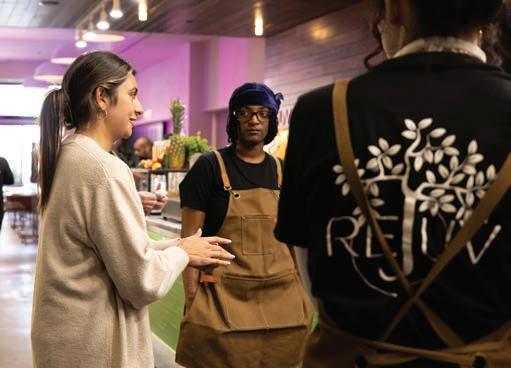

“Everybody in Tri-C’s culinary program really cares about the students, and it’s a great environment.”
— Bill Rini

BILL RINI STARTED A CULINARY SCHOLARSHIP TO REMEMBER HIS BELOVED SISTER.

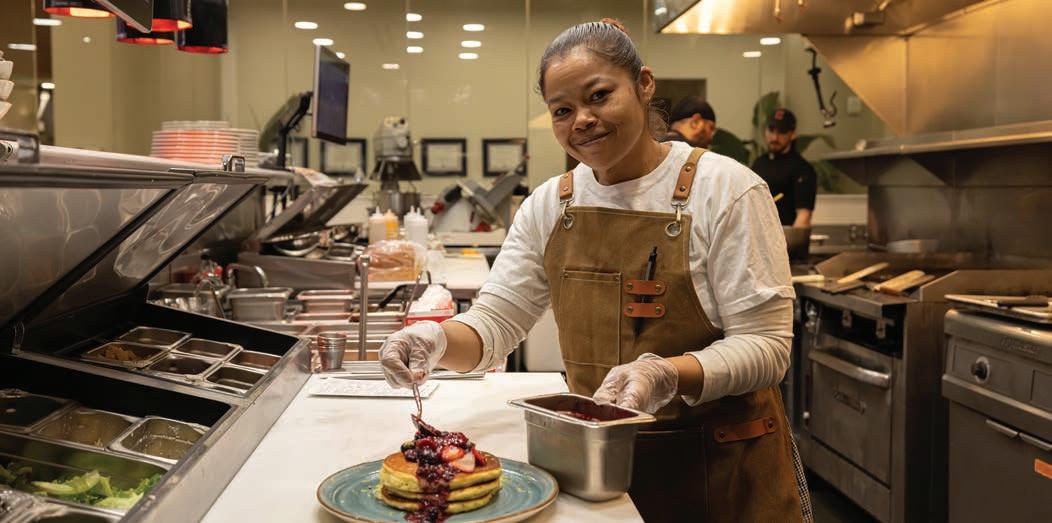
Over the last two and a half years, he has been working on a way to further help students and commemorate his sister. This work came to fruition on April 22, when Rini, in collaboration with the College, opened Rejuv Eatery in the space formerly occupied by Pura Vida, adjacent to the Hospitality Management Center on Public Square. The breakfast and lunch spot employs students from the College’s culinary program, offering them real-world experience and the foundation to manage or open their own Rejuv franchise in the future if they choose.

Rejuv serves quality coffees and teas, fresh juices and smoothies, breakfast foods, salads, wraps and sandwiches, bowls and ramen. Rini swears by the almond flour, lemon-zest pancakes with fresh berry compote. Much of the food is locally sourced.
Rejuv also offers catering, giving students a view into another aspect of the culinary and hospitality profession.


“In school, when you make a mistake, you get a redo. In a restaurant, when you make a mistake, it costs you money. We are trying to give these kids real-life business experiences,” Rini said.
Because the restaurant also employs industry professionals, students will get to watch and learn how the pros do it.
“The culinary students have a huge opportunity now. We are taking them at the entry level and putting them in a restaurant. They get the scholarship. They get their education, and they can be employed,” Rini said.
Rini also owns Blue Heron Brewery and Event Center in Medina.
At the end, Rini’s guiding principle remains the same.
“I’ve been pretty blessed in my career so far, and I know it’s important to give back,” he said.
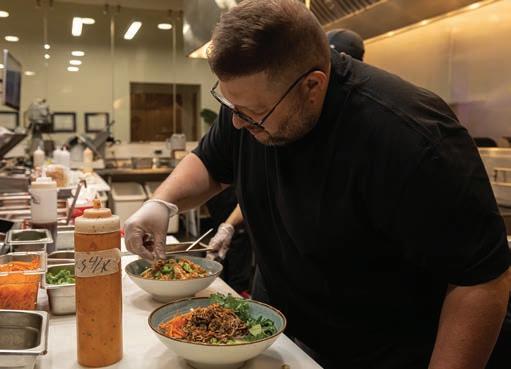


Between print and online, Tri-C Times and the College’s social media channels offer spaces to meet and share comments and ideas.
Follow the College on Instagram, Facebook, YouTube, LinkedIn and X for snapshots of student life, news magazine extras and more. The College also recently introduced profiles on Instagram and X for the Athletics program. Follow us there to keep up with all the Triceratops teams.
Here are samples of how the College and community interact:

Follow Tri-C at: Tri-C on Instagram @tric_edu
Tri-C on Facebook @Cuyahoga Community College
Tri-C on YouTube @CuyahogaCommunityCollegeTriC
Tri-C on LinkedIn @Cuyahoga Community College
Tri-C on X @TriCedu
Tri-C Athletics on Instagram @tri_c_athletics
Tri-C Athletics X @TriCAthletics
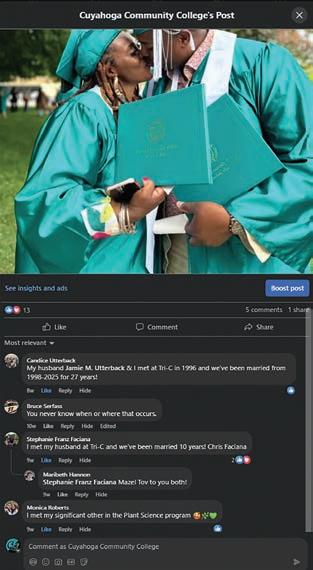
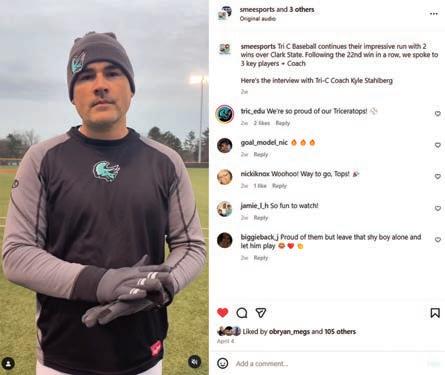


RECREATION AND WELLNESS SURVEY WILL HELP THE DEPARTMENT TAILOR ITS OFFERINGS.
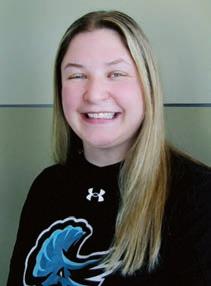

BY Angel Miller
To better serve our faculty, staff, students and community members, the Recreation and Wellness departments at the Eastern, Metropolitan and Western campuses conducted a survey to gather feedback on noncredit classes and programming. This survey showed us what people are looking for and how our department can better engage participants — especially as we work to revitalize noncredit offerings and programming after a period of decline.
Based on the survey results, the Recreation and Wellness department will be implementing improvements to better meet the needs of our communities. One of our greatest strengths, as highlighted by participants, is our ability to provide a space that supports mental and physical health, stress relief and community connection.
With this valuable feedback, we’re launching new initiatives centered around noncredit classes and programming that align with the interests of both the College and the wider community. Some exciting changes are already underway.
• Pools at all three campuses — Eastern, Metro and Western — will remain open through the summer.
• Indoor pickleball has been introduced.
• The fitness center at Metro has been rearranged to accommodate new equipment. Metro also hosted a track-and-field camp this summer.
Stay tuned for updates on our website as we roll out even more offerings in Fall 2025, and feel free to stop by the front desk of our Fitness Center, located in the Metro Campus Recreation Center.
Contact Angel Miller at angel.miller@tri-c.edu.




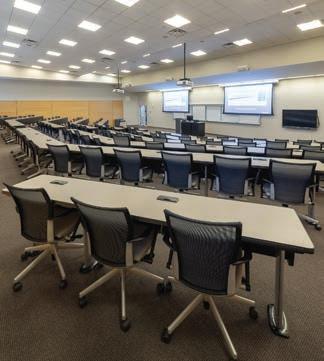

Corporate College® is celebrating two decades of driving professional excellence and business innovation. It’s not just a training hub — it’s a cornerstone for successful professional and business development. Over the past 20 years, Corporate College has empowered professionals and organizations to stay ahead in an ever-evolving world.







